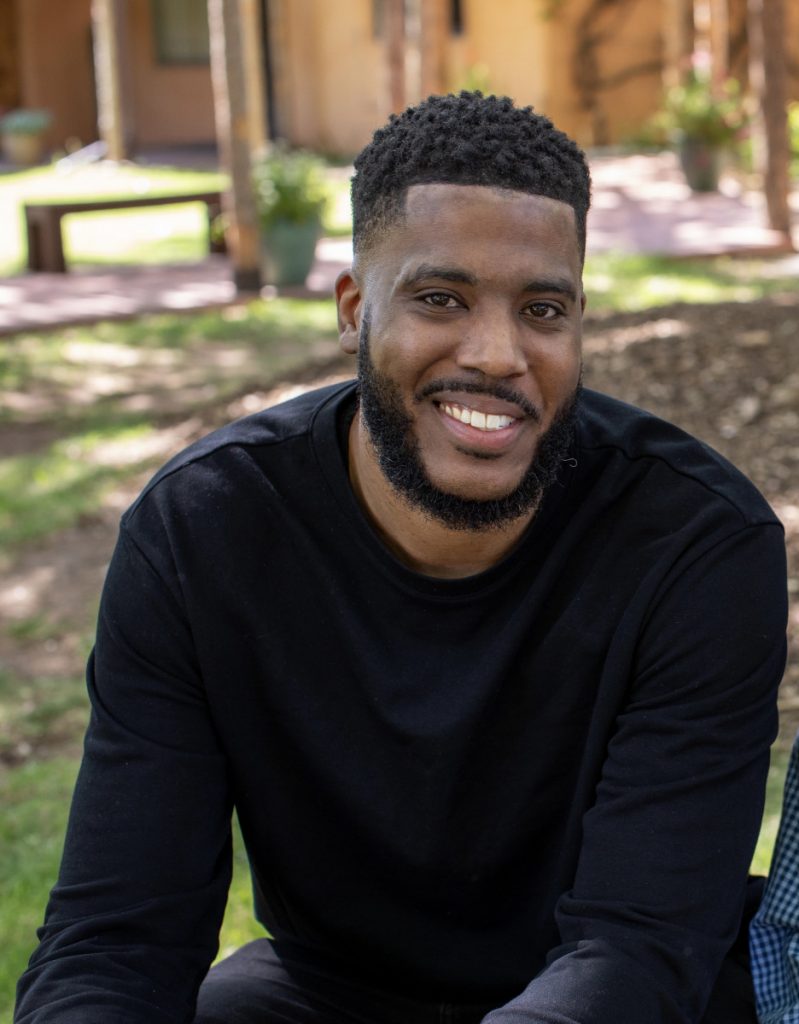
Kaitlyn Finchler
Contributing Writer
How people speak about topics and situations often reflects more upon themselves. This reflection can also be done through different mediums, such as poetry, which offers nuance to the articulation of an idea. Drew Jackson, poet, speaker and public theologian, will discuss “Unlearning God” at 2 p.m. today in the Hall of Philosophy, closing out the Week Eight Interfaith Lecture Series theme “Compassionate, Merciful: Describing the Nature of God.”
“I’m going to be talking about the power of sitting with the question itself, of what is God like and why does it matter?” Jackson said. “(I’ll also talk about) how approaching that question as an opportunity to fall into the mystery of God and not really create hard-line answers and dogmas around that question — that has the opportunity to really open us up and to expand our souls, rather than close us down.”
Paraphrasing writer and civil rights activist James Baldwin’s essay “Letter From a Region in My Mind,” Jackson thinks if the way people understand who God is moves them toward judgment, hate and injustice, then that understanding of God is no use.
“James Baldwin and others who were formed in the tradition of the Black church came to understand God as a God of love and liberation, rooted in the Exodus story — really the central story — when the Hebrew people first began to understand what God is like … and that God revealed God’s self as a liberator of the oppressed,” Jackson said.
People end up reflecting who they believe God to be into the world, Jackson said. The “whole crux” of this idea is people become like what they worship.
“That’s why this question is so important and has so many ramifications today for our everyday lives,” Jackson said. “It’s not just a private, personal thing — it becomes public, it becomes political.”
Fitting their own narrative to who God is or isn’t can happen consciously or unconsciously, he said.
“People don’t even recognize that we attempt to fit God into the mold that we want God to be to fit our own agendas,” he said. “That’s the danger of it, that we can unconsciously do that.”
What people say about God is “first and foremost” a revelation of themselves, their souls and their own journeys, Jackson said.
“We’re trying to put into words something that, a lot of times, you can’t really capture, which is also why I’m interested in poetry,” he said. “Oftentimes, it’s one of the reasons why I think so much of different scriptures are written in the form of poetry — because they are trying to describe something or put into words something that often only poetry can get at.”
How people describe and relate to God is also tied to the ways they relate to other people, Jackson said.
“My hope is less about people coming away with a distinct answer to ‘This is what God is like’ and really to build in the practice of sitting with that question again and again and again,” Jackson said, “not feeling like we are coming to the end of that question, but that so much of our transformation happens by sitting with and staying with the questions.”




